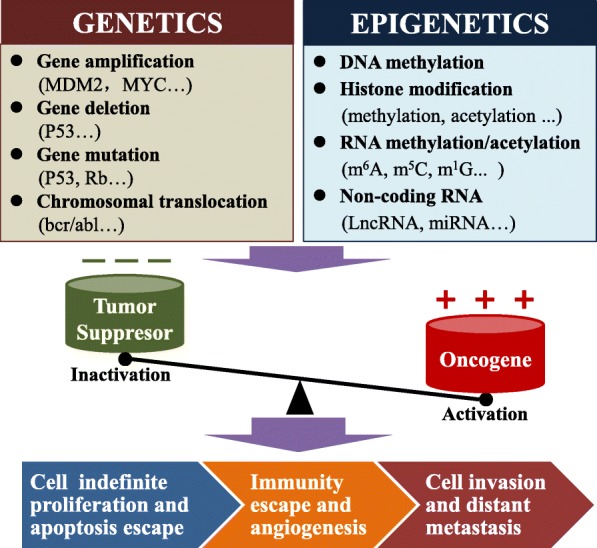Fig. 1.

Abnormal genetics and epigenetics contribute to cancer development. Genetic changes mainly include gene amplification, deletion, mutation, and chromosomal translocation, while epigenetic changes include DNA methylation, histone modification (methylation, acetylation, etc.), non-coding RNA, and RNA methylation/acetylation. Abnormal genetics and epigenetics lead to oncogene activation and tumor suppressor gene inactivation, which result in uncontrolled cell growth and decreased apoptosis. With the development of cancer, tumor cells evade the immune system and promote angiogenesis; tumor cells can also invade the stroma via migration and invasion and enter the lymph vessels or blood vessels to cause distant metastasis
